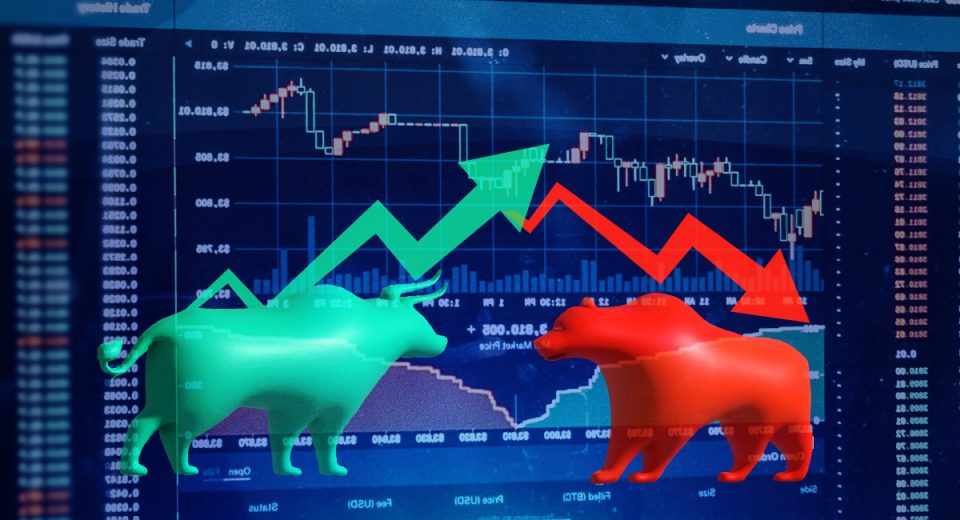Is There a Relationship Between Oil Prices and Yen?

Oil prices rose following the US military strikes on Iranian nuclear facilities in late June 2025. This led to concerns regarding Japan’s economy, given the nation’s dependence on energy imports. Consequently, the Japanese yen fell to 5-week lows against the US dollar. Japan, being a major oil importer, sees its trade balance worsen and its economy face inflationary pressures when energy costs rise, which in turn puts downward pressure on its currency.
This article explores the correlation between oil prices and the Japanese yen (JPY) and how traders can capitalise on this relationship.
Japan’s Energy Import Dependence
Japan has virtually no domestic oil reserves. This means the country is almost entirely dependent on imported crude oil to fuel its industries, power its homes and transport its goods. As of May 2024, Japan imported 98% of its natural gas and was the world’s leading liquefied natural gas (LNG) importer.
Japan’s reliance on imported energy means that when oil prices rise, the nation’s import costs increase significantly. This has several direct implications. Firstly, it leads to a larger import bill, which can worsen the trade balance. A deteriorating trade balance, where the cost of imports outstrips the value of exports, can exert downward pressure on the JPY. This is because a higher demand for foreign currency (to pay for oil imports) relative to the supply of foreign currency (from exports) weakens the domestic currency.
Secondly, higher oil prices translate to increased production costs for Japanese businesses, particularly those in energy-intensive sectors like manufacturing and transportation. These higher costs can squeeze profit margins, potentially leading to reduced investment, slower economic growth and even inflationary pressures. If businesses pass on these increased costs to consumers, it can dampen domestic demand, further impacting the economic outlook. In such scenarios, the Bank of Japan (BoJ) might face a dilemma: whether to tolerate higher inflation or tighten monetary policy, which could have implications for the yen’s strength.
Conversely, a decline in oil prices can be a significant boon for the Japanese economy. Lower import costs reduce the trade deficit, potentially strengthening the JPY as less foreign currency is needed to purchase oil. Lower oil prices also decrease production costs for businesses, boosting profitability and potentially stimulating investment and economic activity. This can lead to a more favourable economic outlook, which tends to support a stronger currency.
The Japanese Yen as a Safe-Haven Currency
The JPY has historically been considered a safe-haven currency, with traders tending to flock to it during times of global economic uncertainty or geopolitical instability. This is often attributed to Japan’s status as a major creditor nation, its significant foreign exchange reserves and its relatively stable political environment. In times of crisis, capital flows into the yen, pushing its value higher.
However, the relationship between oil prices and the yen introduces a nuance to this safe-haven status. While the JPY might strengthen during a broader risk-off environment, if that risk-off environment is driven by a surge in oil prices (e.g., due to supply disruptions or geopolitical tensions in oil-producing regions), the Japanese yen’s strength could be tempered or even reversed due to the negative economic impact on Japan.
Conversely, a decline in oil prices, particularly if it signals a global economic slowdown, could still see the JPY strengthen as a safe-haven, as the benefit of lower energy costs for Japan would be viewed positively against a backdrop of broader economic uncertainty elsewhere. Therefore, the context surrounding oil price moves is crucial when assessing the likely impact on the yen.
Trading Strategies Based on the Oil-Yen Relationship
Understanding the dynamics between oil prices and the Japanese yen can inform various forex trading strategies.
Correlation Trading
Traders often look for a negative correlation between crude oil prices (WTI or Brent futures) and the USD/JPY currency pair. When oil prices are rising, it often implies a weaker JPY against the USD, meaning the USD/JPY might trend higher. Conversely, falling oil prices could suggest a stronger yen, leading to a decline in the USD/JPY. Traders can use this observed correlation to anticipate currency movements. For instance, if oil prices are sharply declining, a trader might consider taking a short position on USD/JPY. However, it is important to note that this correlation can be unstable and vary over time, so robust research, analysis and risk management are essential.
Trading Economic Releases
Monitoring key Japanese economic data, especially trade balance figures and inflation reports, is vital. A widening trade deficit, due to high energy imports, could signal a weaker JPY. Similarly, inflation data, influenced by rising energy costs, can prompt the BoJ to consider policy adjustments, which can also impact the currency. Pay close attention to the BoJ’s monetary policy announcements and press releases to gain insight into its stance on inflation and economic growth in the context of energy prices. For instance, if the BOJ maintains a dovish stance while oil prices surge, the Japanese yen could face downward pressure due to widening interest rate differentials with other major economies like the US.
News Trading
Geopolitical events, particularly those affecting global oil supply or demand, can trigger significant movements in both oil prices and the yen. Stay abreast of events in major oil-producing regions and global consumption trends. A sudden escalation of tensions that threatens oil supply could send oil prices surging, potentially weighing on the JPY. Conversely, a resolution of tensions that eases supply concerns could see oil prices fall and potentially support the yen.
Volatility Trading
Periods of high volatility in the oil markets can often translate to increased volatility in forex pairs that include the Japanese yen. Traders with strategies focused on volatility, such as options trading or using specific indicators like Average True Range (ATR) or Bollinger Bands, might find opportunities during such times.
However, remember that risk management is invaluable, especially during periods of high volatility.
To Sum Up
- Since Japan is highly dependent on oil imports, oil price moves impact the Japanese yen.
- Rising oil prices can hurt Japan’s trade balance, increase costs for businesses and even lead to inflation.
- When oil prices hurt the economy, the BoJ might consider tightening its monetary policy.
- Falling oil prices can support the Japanese economy and strengthen the yen.
- The context of the oil price rise could overshadow the safe-haven status of the JPY.
- Correlation trading, trading economic releases, news trading and volatility trading are popular strategies to capture the relationship between oil and the JPY.
Disclaimer:
All data, information and materials are published and provided “as is” solely for informational purposes only, and is not intended nor should be considered, in any way, as investment advice, recommendations, and/or suggestions for performing any actions with financial instruments. The information and opinions presented do not take into account any particular individual’s investment objectives, financial situation or needs, and hence does not constitute as an advice or a recommendation with respect to any investment product. All investors should seek advice from certified financial advisors based on their unique situation before making any investment decisions in accordance to their personal risk appetite. Blackwell Global endeavours to ensure that the information provided is complete and correct, but make no representation as to the actuality, accuracy or completeness of the information. Information, data and opinions may change without notice and Blackwell Global is not obliged to update on the changes. The opinions and views expressed are solely those of the authors and analysts and do not necessarily represent that of Blackwell Global or its management, shareholders, and affiliates. Any projections or views of the market provided may not prove to be accurate. Past performance is not necessarily an indicative of future performance. Blackwell Global assumes no liability for any loss arising directly or indirectly from use of or reliance on such information here in contained. Reproduction of this information, in whole or in part, is not permitted.




